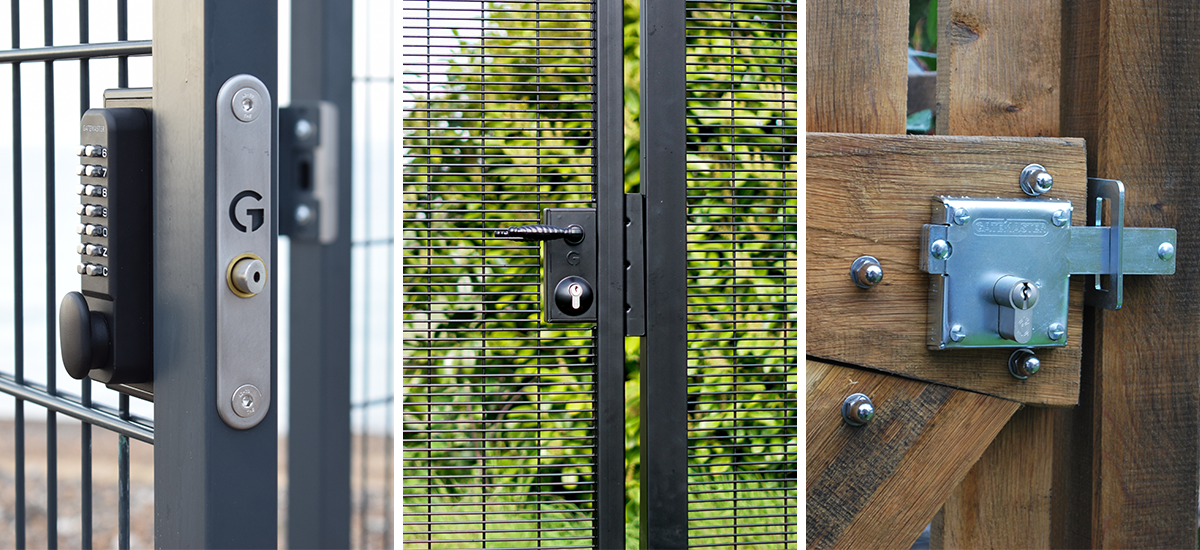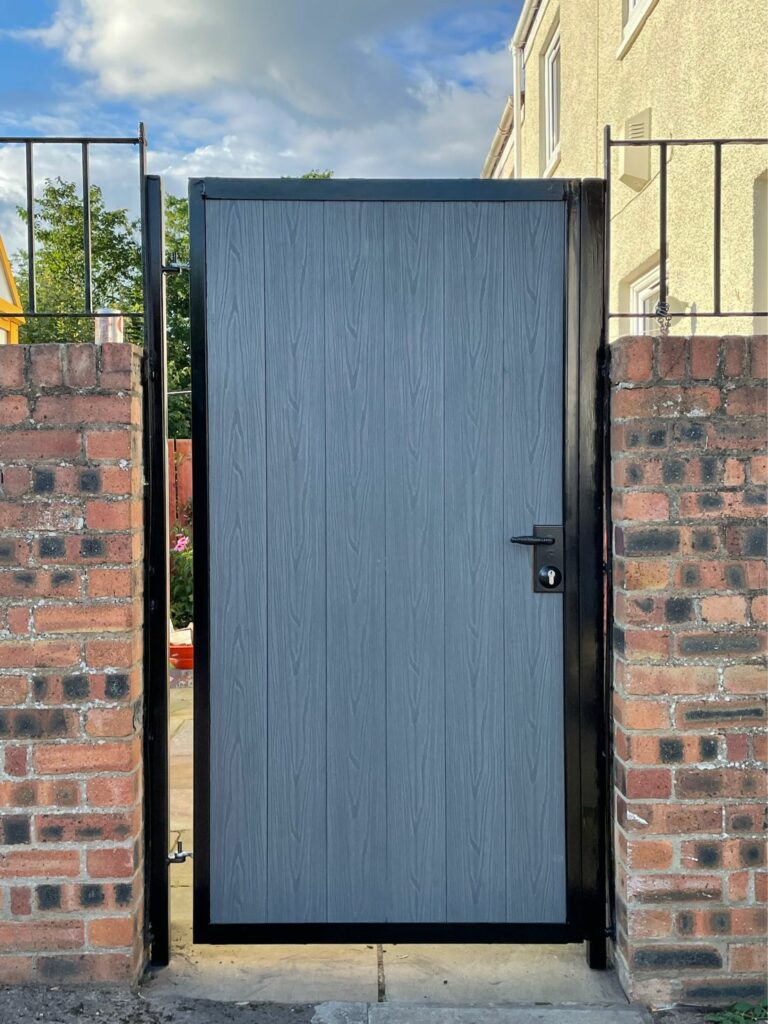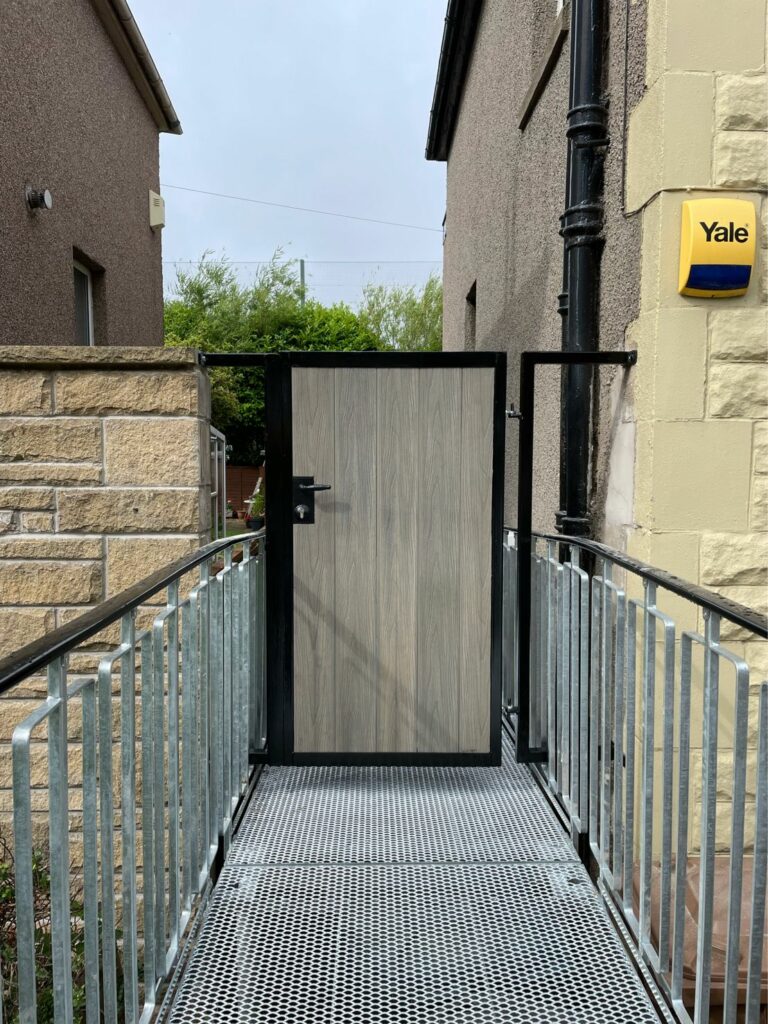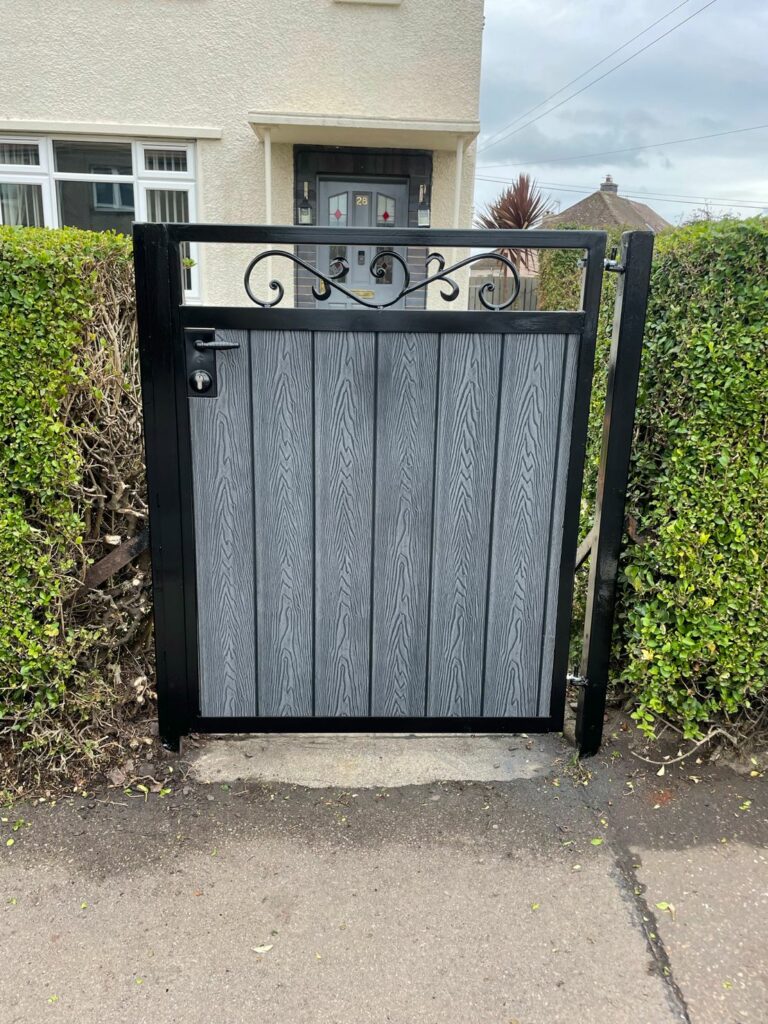The best locks for composite gates: What should I use?
Whether your customer wants a gate for security reasons or safety, chances are they want it to look good too. In recent years, composite gates have been gaining popularity. Thanks to the minimal maintenance and high durability, more homeowners choose composite gates. We go through your options about locks for composite gates.
We’ve had a look at a few lock types and have caught up with one of our customers, Darren Smith from Precision Steel Fabrications, to discuss why he chooses the Superlock every time.
Finding suitable locks for composite gates
Composite gates are gaining popularity thanks to their easy maintenance and manufacturing. They are durable, they look good for longer, and require low maintenance.
As opposed to metal gates, composite gates often consist of a solid infill of composite slats. They will usually have a metal gate frame surrounding the composite.
This means that it is more difficult to fit a suitable locks for composite gates as the they cannot be as easily attached to the surface of the gate and with the solid infill it is harder to cut a slot for the lock.
So, what locks can you use on composite infill gates?
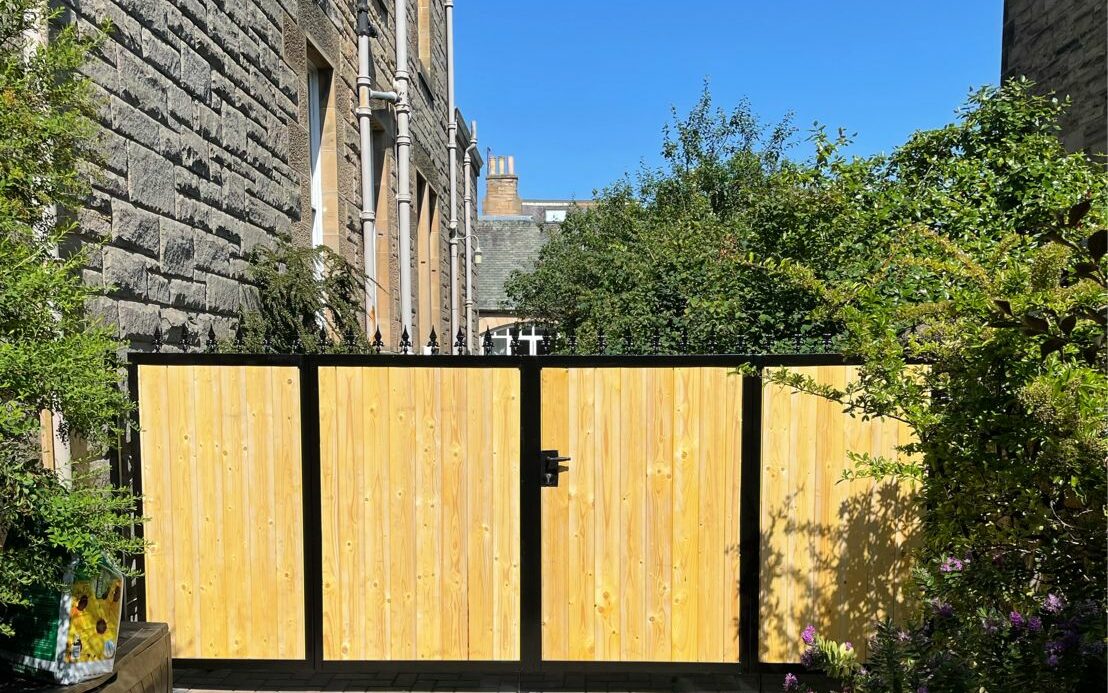
Insert locks
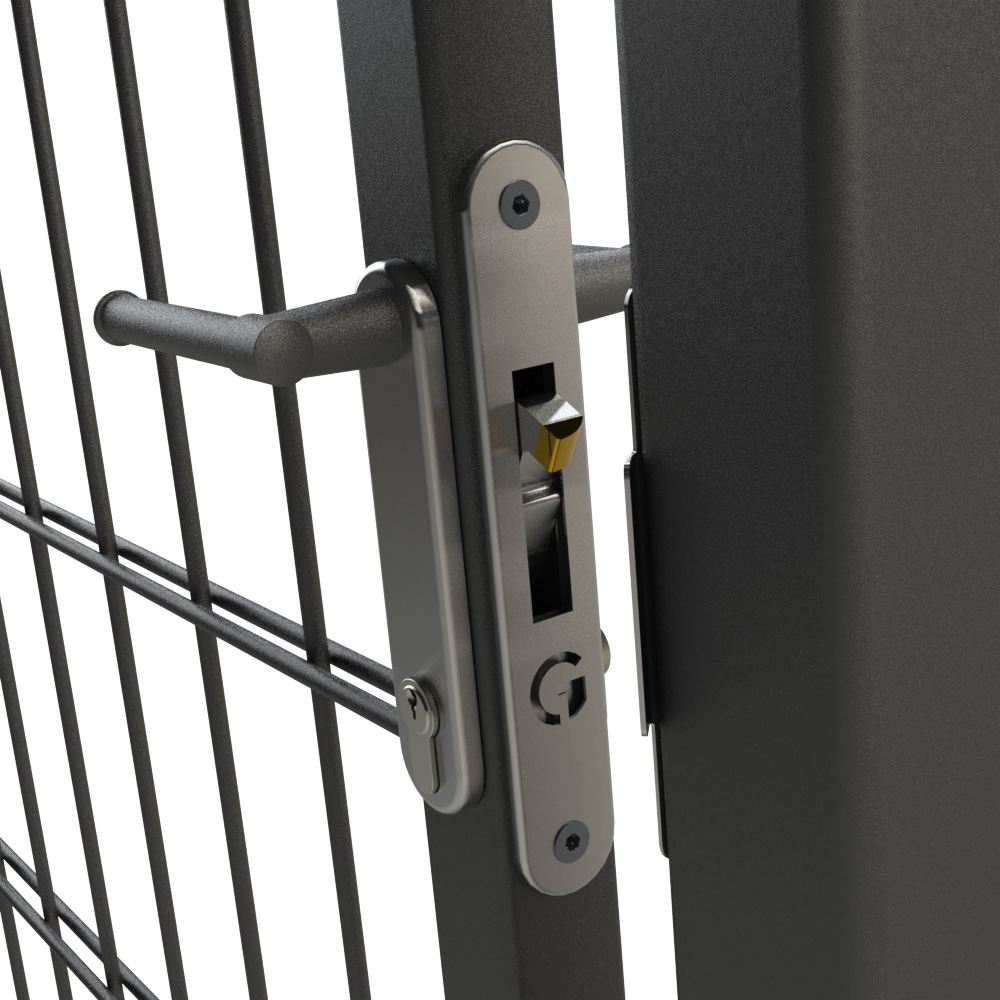
The first lock style we would suggest to a customer looking for locks for composite gates is the insert lock, also known as a mortice lock. Installed in a slot in the gate frame, an insert lock is an inconspicuous option. It is a suitable lock for composite gates because:
- It sits neatly within the metal frame of the gate
- An insert lock only requires holes cut in the composite for the cylinder and the handle
- You can even get cover plates to hide the cuts if you’re worried about the finished look
- You can prepare the metal frame in the same way if using the same insert lock throughout your range.
The finished result is a lock that is hidden in the gate frame without disturbing the look and style of the gate. If you want to learn more about mortice locks and how they are installed, read our blog about different types of gate locks.
Surface-fixed locks
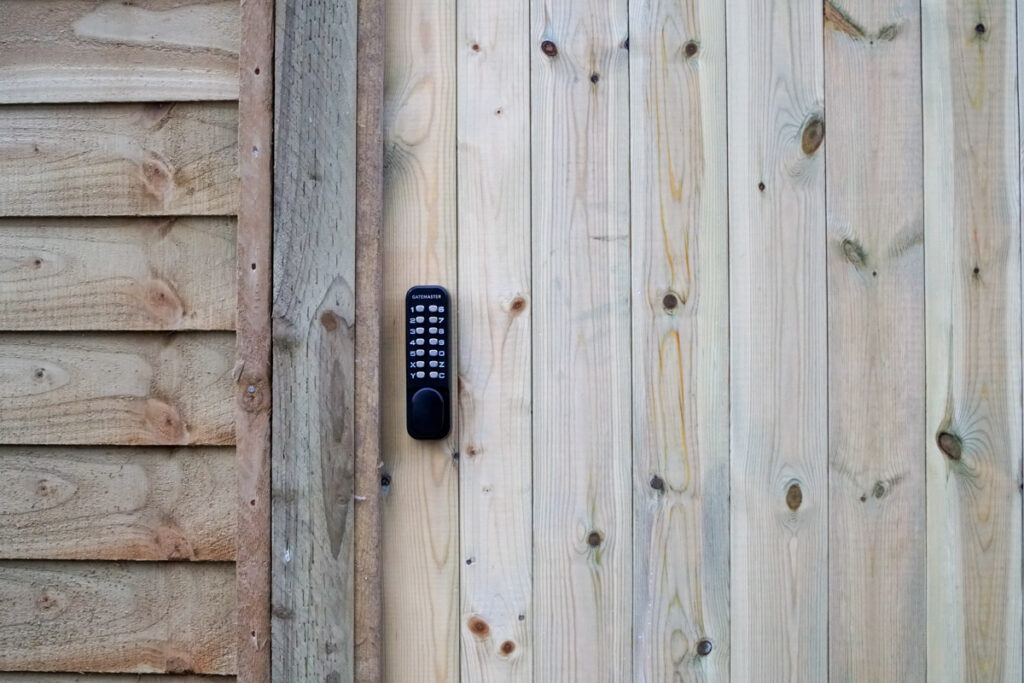
Another option installers consider is the surface-fixed lock. Commonly used on wooden gates, they are simply attached to the surface of the gate as seen in the image.
They work for solid wooden gates, however with composite gates you can have issues.
Due to the combination of the metal box section frame and the composite infill, the placement of the surface-fixed lock matters.
The lock would need to fit fully onto the metal box section only. As they are technically two different components, the metal and the composite infill moves and flexes during windy weather for instance. If the lock is fitted half on the metal and half on the composite infill, this movement can lead to the lock malfunctioning and wearing due to the added stress. We therefore recommend that you fit the surface-fixed lock to the metal section only. This would require a large metal box section, which is rarely done due to the design and look of the gate.
So, technically you can use a surface-fixed locks for composite gates but there are some constraints when doing so to ensure longevity and top performance of the lock.
Bolt-on locks
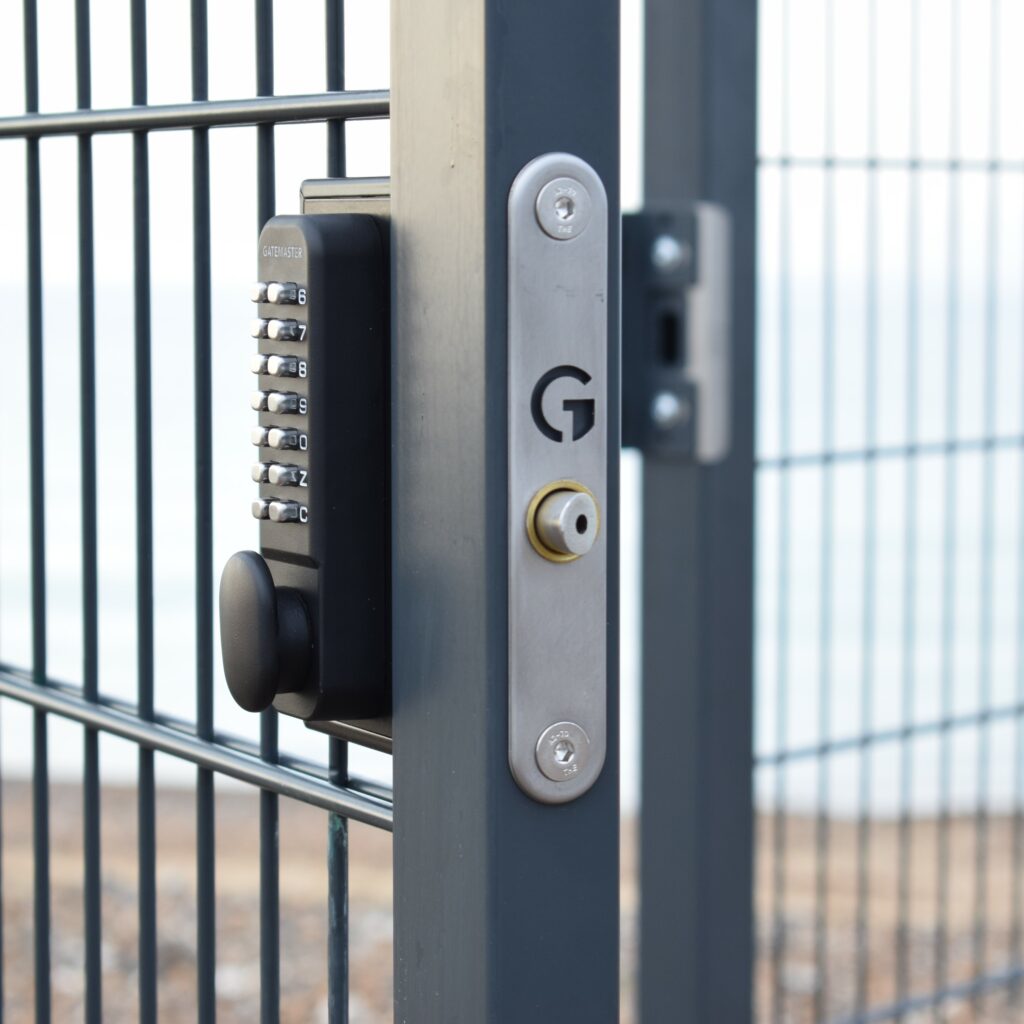
Now hear us out with this one. Bolt-on locks are commonly used on metal gate square tube as they are easy to install. All it takes is three drilled holes and fixing the lock through the gate frame.
With any infill gates, bolt-on locks are not commonly used as they will require you to cut out a section of the infill. This is the same for composite gates.
However, our bolt-on lock range, the Superlock, can be considered suitable locks for composite gates. With the slim profile of only 2-3/4″ x 6-5/16″, it is simple to cut a hole in the infill to suit the Superlock.
Take it from Darren Smith from Precision Steel Fabrication, who uses our locks for composite gates all over Edinburgh, Scotland. We caught up with him to discuss some of his recent work and exactly why he uses the Superlock.
Why do you use the Gatemaster Superlock for your composite gates?
“It just looks good! And it’s simple to install. The rectangular shape makes it really easy to cut the slot in the composite as I can keep the cuts as simple as possible. This means I get a nice and neat finish, and my customers get a good-looking gate”.
In addition, the Superlock range has a variety of different lock types depending on the needs of his customers.
“It doesn’t matter if I need a code lock or a classic latch deadlock. By using the Superlock, I can cut the same hole in the composite and use which ever lock type my customers want”.
Being able to prepare the gate from the beginning saves time too, which is important when you’re as busy as Darren is.
Have a look at some of Darren’s recent composite gates where he has used the Superlock!
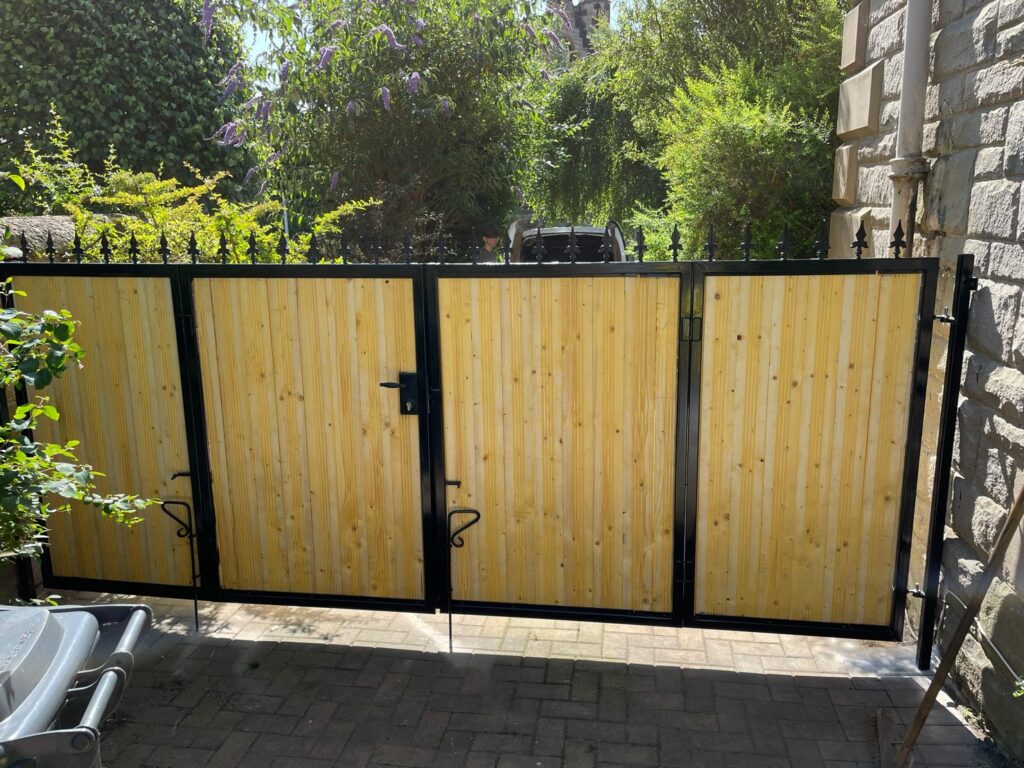
Read more:
Gate lock guide: Why you should choose a bolt-on gate lock
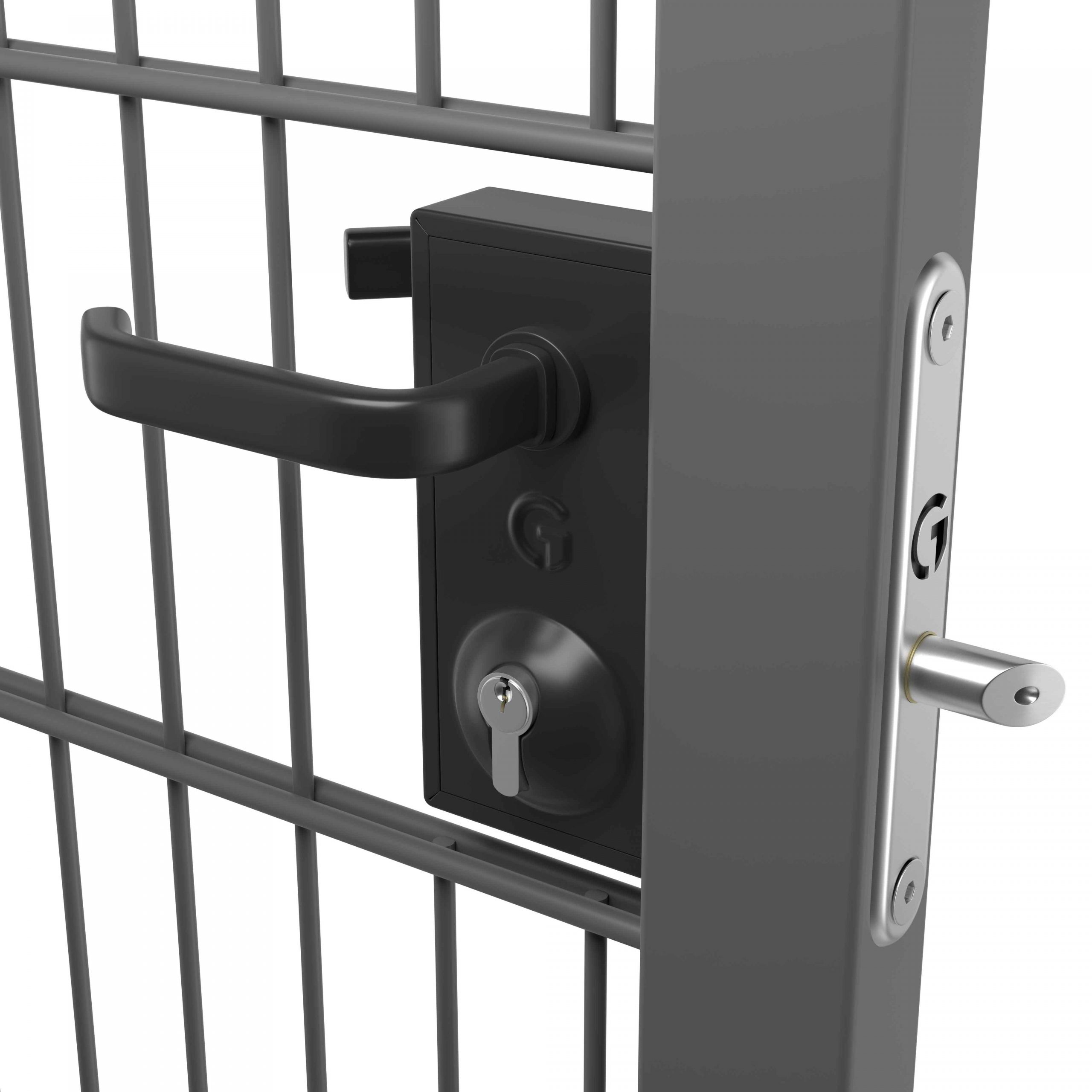
Gate locks with code, panic exit or key? Different types of locks for gates
